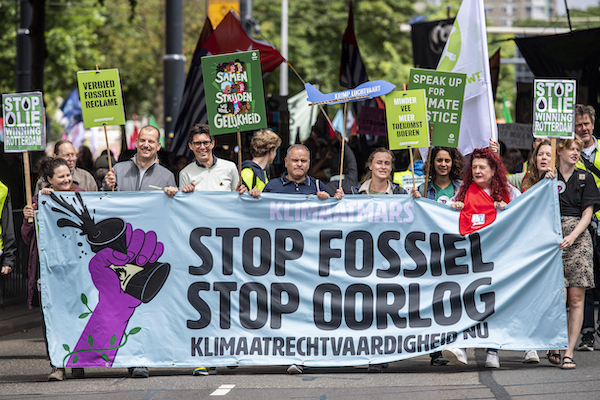Dutch won’t meet climate targets, new gov is making things worse

The Netherlands is extremely unlikely to achieve its climate targets, and the likelihood is becoming more remote as time passes, according to the government’s environmental assessment agency PBL in its latest report.
The Netherlands aims to cut carbon dioxide emissions by 55% in 2030 when compared with 1990, but the current plans make a reduction of 44% to 52% the maximum achievable, the PBL said on Thursday. No sectors are currently on target.
Energy prices have fallen and this means households and industry are not being stimulated to cut usage because of high bills, the PBL said. The development of offshore wind farms and green hydrogen power is also proceeding more slowly than expected.
In addition, the right-wing administration plans to increase motorway speed limits, scrap measures to reduce car use, make solar panels less attractive and leave energy taxes as they are, the agency pointed out.
“Normally new measures mean improvements but not with this cabinet’s plans,” PBL director Marko Hekkert said at the presentation. “More than that, some of these plans mean the targets will be further away than ever.”
“The Netherlands was doing well, but we are facing delays,” he said.
The coalition agreement does stress support for the Paris climate agreement and says that if targets are not going to be achieved, it will come with additional measures.
Climate minister Sophie Hermans on Thursday announced some new measures but said more detail will follow at a later date. “I am not ignoring the fact that we are not doing enough,” she said at the presentation of her plans.
In particular, she wants to take steps to boost electricity grid capacity, which is hindering new construction, industrial expansion and efforts to generate alternative sources of energy.
Both industry and home owners will be faced with limitations as grid capacity is stretched to the limit, she said.
Some 50,000 new transformer blocks are needed and steps will be taken to build them as soon as possible, Hermans said. Councils and grid companies will have to find locations and reach deals with locals and this will be a major task in some areas.
Thank you for donating to DutchNews.nl.
We could not provide the Dutch News service, and keep it free of charge, without the generous support of our readers. Your donations allow us to report on issues you tell us matter, and provide you with a summary of the most important Dutch news each day.
Make a donation